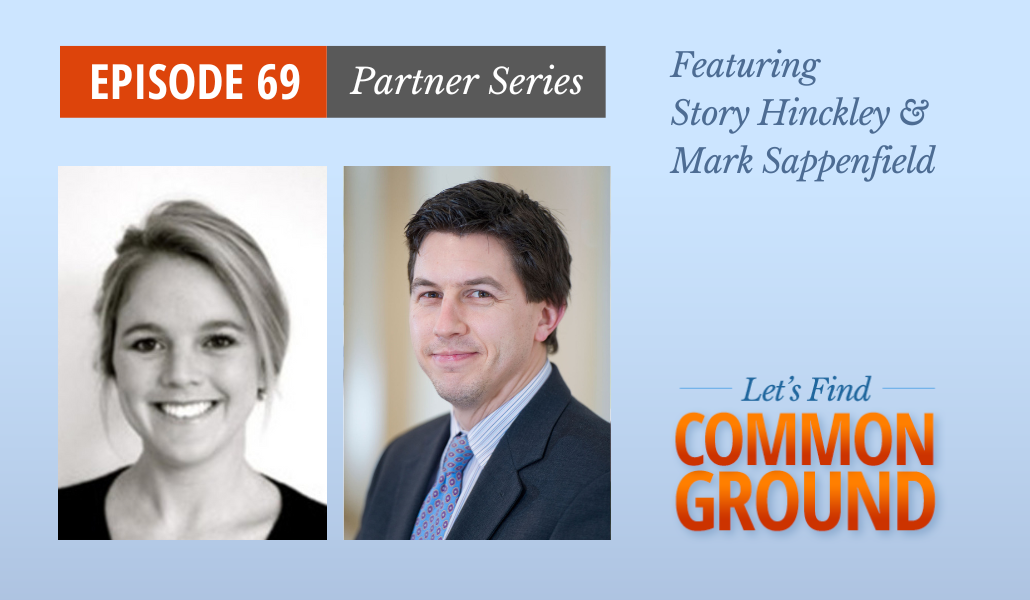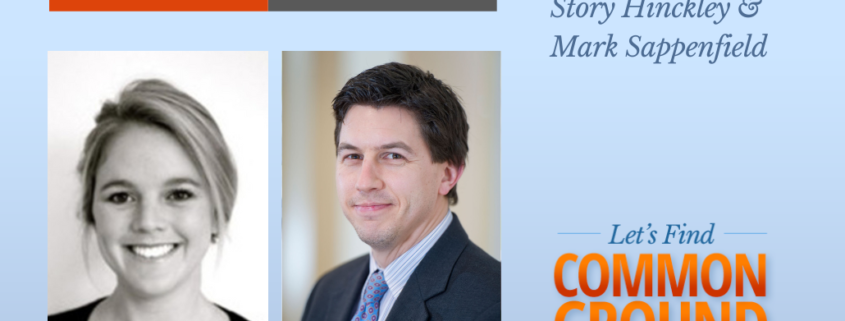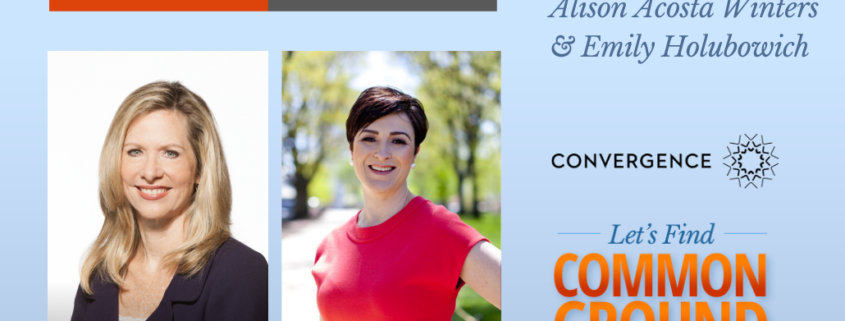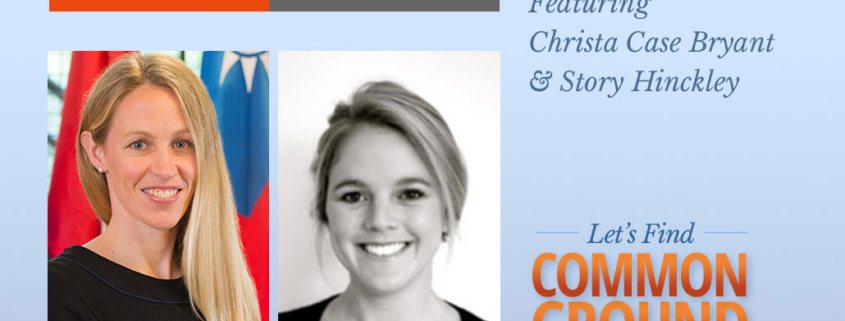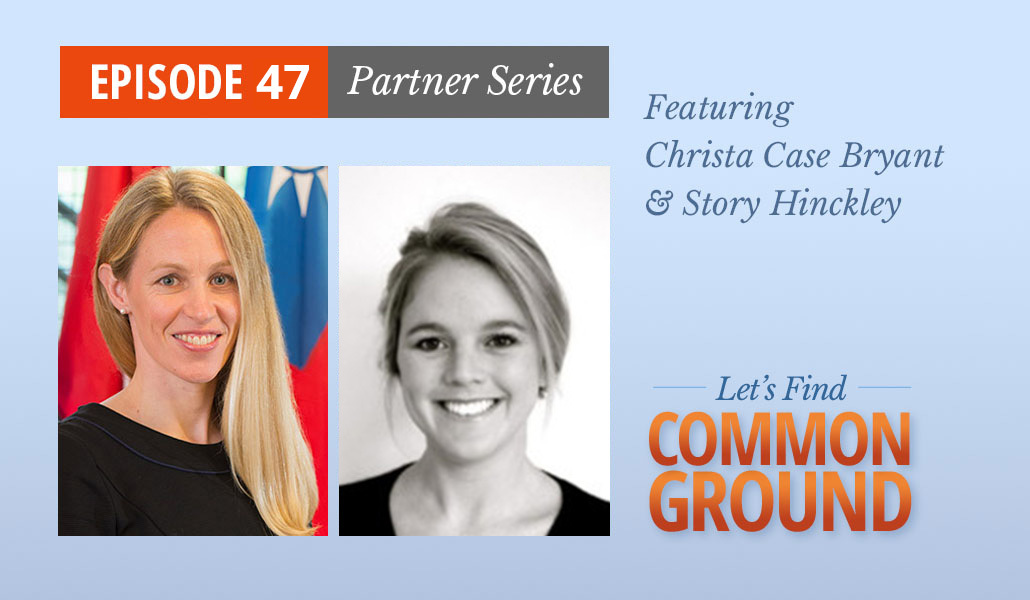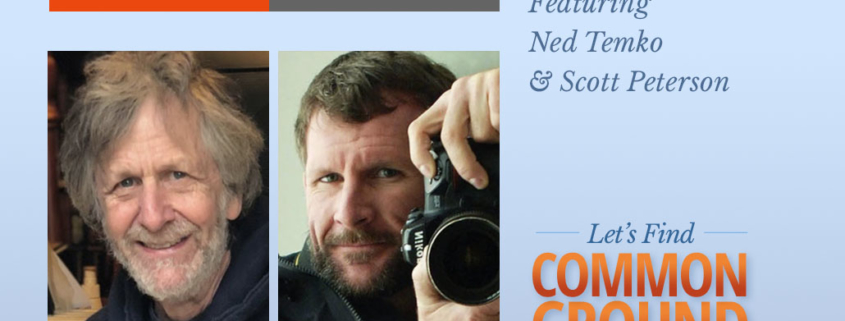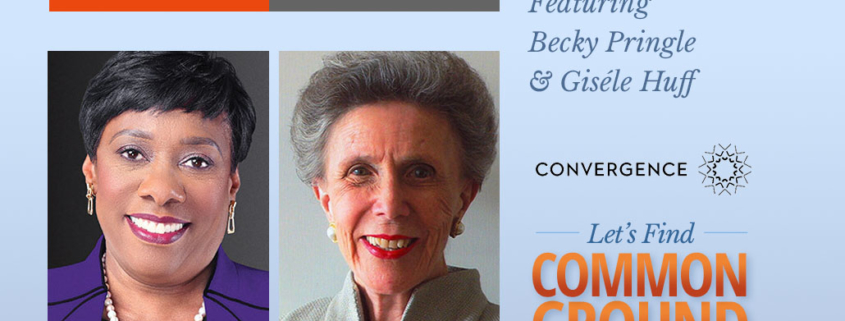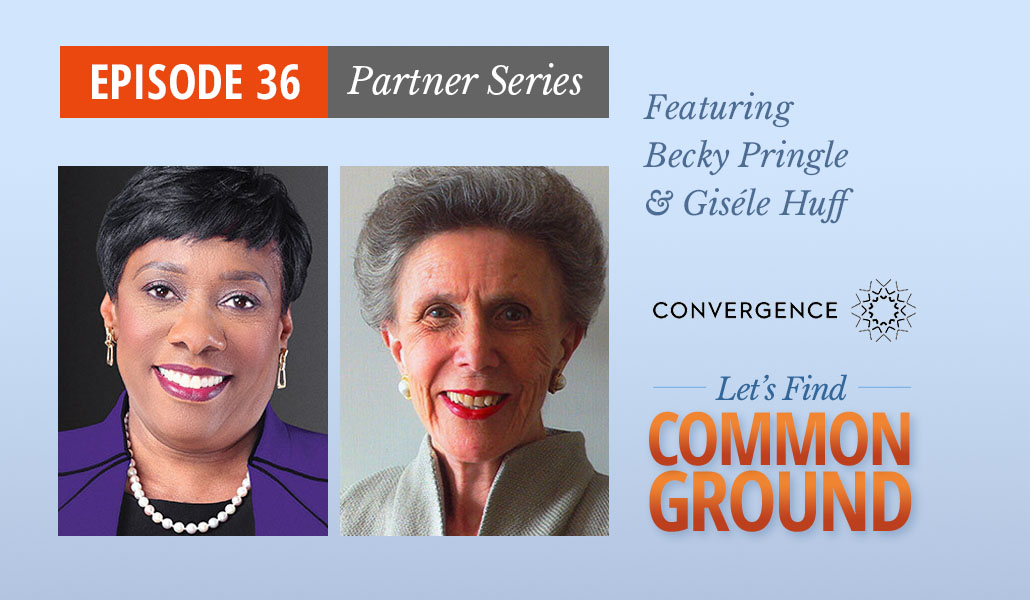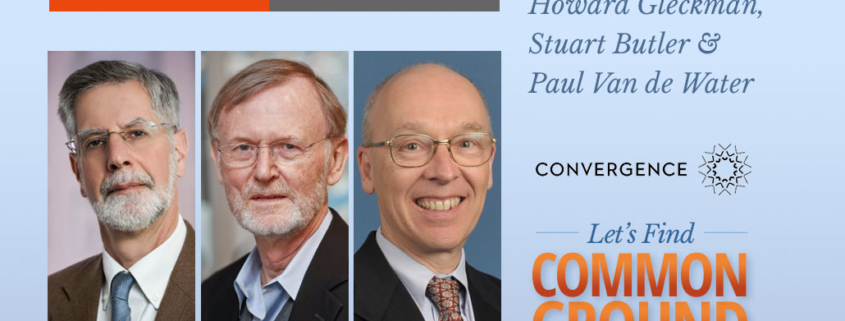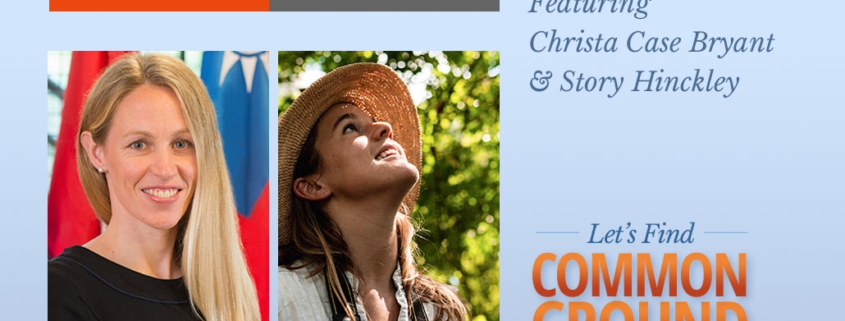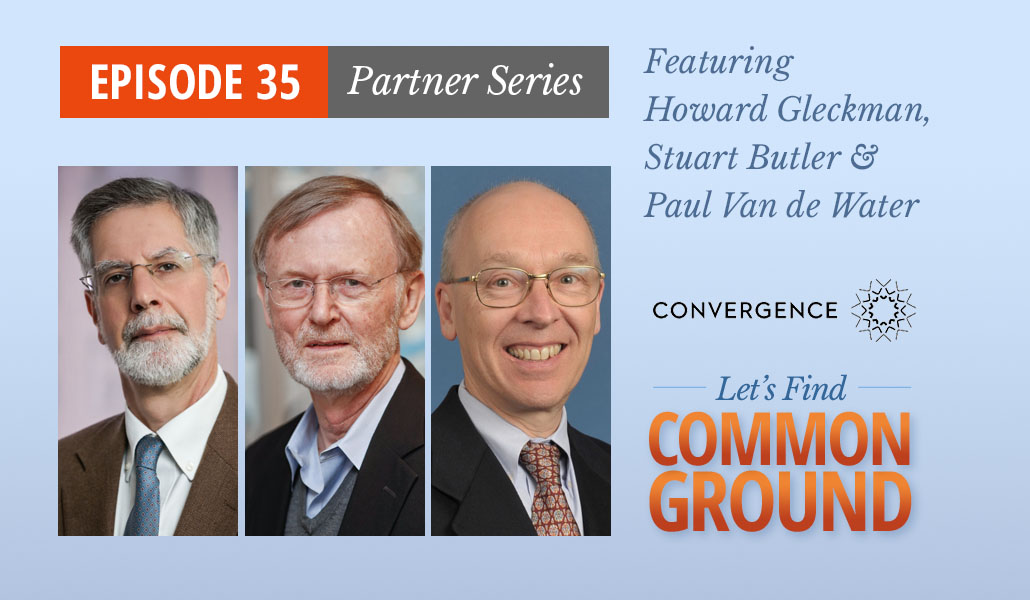
Subscribe to the Podcast




America’s long-term care system needs much more than a facelift. Is there a common path to solutions?

Most baby boomers who retire today can expect to live years longer than their parents or any previous generation. That’s the good news. But there’s a greatly increased need for long-term care as they age. The current system is in crisis and needs much more than a facelift.
In this episode, we hear first from a policy expert, Howard Gleckman, of the Tax Policy Institute, who explains why solutions to this crisis have been so hard to find. We also interview Stuart Butler and Paul Van de Water on their differences in overpaying for long-term care, and how they came to find common ground.
This podcast was co-produced in partnership with Convergence Center for Policy Resolution and is one of a series of podcasts that Common Ground Committee and Convergence are producing together.
Convergence brings together key stakeholders of an issue to develop policies that deliver the most value to the greatest number of people. These projects emphasize collaboration and often result in friendships among people with strongly held opposing positions. Convergence recently published Rethinking Care for Older Adults, a report with recommendations to improve care, housing, and services for seniors.
Read The Episode Transcript
Ep. 35: The Long-Term Care Crisis
Howard Gleckman
Howard Gleckman is a Senior Fellow at The Urban Institute in Washington, D.C., where he is affiliated with both the Tax Policy Center and the Program on Retirement Policy. He is the author of Caring for Our Parents (St. Martin’s Press).
He is the author of the Urban-Brookings Tax Policy Center’s fiscal policy blog Tax Vox and a weekly blog on aging issues for Forbes.com.
Mr. Gleckman served on the National Academy of Social Insurance Study Panel on Long-Term Services and Supports (2018-2019). He was a convener of the Long-Term Care Financing Collaborative (2012-2016), a 2006-2007 Media Fellow at the Kaiser Family Foundation and a 2006-2008 Visiting Fellow at the Center for Retirement Research at Boston College. He was senior correspondent in the Washington bureau of Business Week, where he covered health and elder care as well as tax and budget issues, for nearly 20 years.
In 2016, he was named one of the nation’s top 50 Influencers in Aging by Next Avenue. He was a 2003 National Magazine Award finalist for “The Coming Revolution in Health Care” for Business Week.
Mr. Gleckman is president of the Jewish Council for the Aging of Greater Washington, a member of the Johns Hopkins Health System’s National Capital Region Executive Governance Committee, and a trustee of the Johns Hopkins Medicine Patient Safety and Quality Committee. He previously served as chair of the board of trustees of Suburban Hospital (Bethesda, MD), trustee of Johns Hopkins Medicine (2017-2019), as a member of the board of the Symphony of the Potomac, and president of Tifereth Israel Congregation (Wash, DC).
Stuart Butler
Stuart Butler is a senior fellow in Economic Studies at The Brookings Institution. Prior to joining Brookings, Butler spent 35 years at The Heritage Foundation as director of the Center for Policy Innovation and earlier as vice president for Domestic and Economic Policy Studies. He is also a visiting fellow at the Convergence Center for Policy Resolution. He is a member of the editorial board of Health Affairs and the board of Mary’s Center, a group of Washington, D.C.-area community health centers.
Butler also serves on several advisory councils, including for the National Coalition for Cancer Survivorship, the Aspen Institute’s Family Prosperity Innovation Community, and the March of Dimes. He is also a member of the Advisory Group for the National Academy’s Culture of Health Program.
Previously he was a member of the Board on Health Care Services of the National Academy of Medicine and served on the panel of health advisers for the Congressional Budget Office. For over 10 years he taught as an adjunct professor at Georgetown University’s McCourt School of Public Policy, and in 2002 he was an Institute of Politics Fellow at Harvard University. In 1990, he served as a member of Housing Secretary Jack Kemp’s Advisory Commission on Regulatory Barriers to Affordable Housing.
Most recently, Butler has played a prominent role in the debate over health care and reform, arguing for solutions based on individual choice, state innovation, market competition, and social determinants of health. He has also been working on a wide range of other issues, including budget process reform, the future of higher education, economic mobility, and federal entitlement reform.
Stuart Butler was born in Shrewsbury, England and emigrated to the United States in 1975. He was educated at St. Andrews University in Scotland, where he received a Bachelor of Science degree in physics and mathematics in 1968, a Master of Arts degree in economics and history in 1971, and a Ph.D. in American economic history in 1978.
Paul Van de Water
Paul N. Van de Water is a Senior Fellow at the Center on Budget and Policy Priorities, where he specializes in Social Security, Medicare, and health coverage issues. His previous positions include Vice President for Health Policy at the National Academy of Social Insurance, Assistant Deputy Commissioner for Policy at the Social Security Administration, Associate Commissioner for Research, Evaluation, and Statistics at Social Security, and Assistant Director for Budget Analysis at the Congressional Budget Office. Van de Water holds an A.B. with the highest honors in economics from Princeton University and a Ph.D. in economics from the Massachusetts Institute of Technology.
Want to hear more? Check out our podcast page to see all the discussions!
